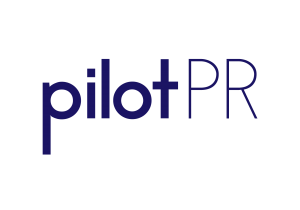Whether you’re an entrepreneur, in the c-Suite, or on the way to being either of these, one of the key trends social media has created is the expectation that leaders and businesses are human when they build their profile. If you’re a business leader building your reputation, knowing your purpose for doing it and committing to sharing your knowledge is important. However, it’s also important to show people, stakeholders, customers and employees your human side.
For many leaders it comes naturally to know the right kind of human, day-in the-life-of style content to share. Something that’s relatable, genuine, doesn’t alienate, might be funny or tongue in cheek generally works. Goldman Sachs CEO David Soloman uses Instagram to connect with his millennial employees (he has 34.3k followers and Goldman Sachs has a workforce of 40.5k). He says: “CEOs don’t sit up in an ivory tower anymore, isolated. If you do, by the way, it’s going to be a very unsuccessful way to run your company. So you’ve got to be a little more available, a little more vulnerable, a little more human and you’ve got to be in touch.”
But for others it doesn’t come as naturally.
I’ve been in meetings with clients when we’re creating a content and reputation strategy for their c-Suite team and a client will say, ‘what are we going to do about managing X so they know what to share and what not to share without offending or embarrassing them?’
I’ve also been told about the ‘CEO phenomenon’ – what happens when some people first reach the c-Suite and everything that comes with it. The salary. The fulfillment. The perception that they’ve made it. So they shout about it. They shout about it all the time. And it doesn’t look good. Not for them, not for the businesses they lead, not for their board and not for their shareholders, stakeholders, partners, clients.
When I first started working with leaders, some mentioned Craig Stroggie as a can’t-look-away case study of what not to do when it comes to building your reputation as a business leader on public platforms. Craig is NEXTDC’s CEO and in 2018 the AFR flogged him for his “arguably injudicious relish for sharing his high-octane, big-spending ways with the 413 people who follow him on Instagram.” Craig took his Instagram down at the time, but now he’s back with 672 followers and a private account. He’s also since set himself up on LinkedIn with a fairly active profile and 20k followers. What has stuck though is the AFR’s dislike of Craig… Google him and on page one is an unfriendly Rear Window on Craig selling his Ferrari. Better than the 2018 Instagram story which ranked second when you Googled Craig that year. At the time, Craig’s lifestyle and appetite for showing it off wasn’t good news for NextDC’s Board, investors, clients or partners. Or Craig. Obviously. But since then, Craig has diligently turned around his profile for the most part. He’s prioritised LinkedIn and given some good interviews on NextDC and industry trends.
So, if you’re a leader wanting to know how to share your human side online but not be Craig, how can you decide what’s right?
You can ask these questions:
- Is it something you love and does it reflect your values?
If you’re approaching building your reputation with purpose, you’ll know the important role your values play in implementing a reputation strategy that delivers value to you and the businesses you lead. Share a post if it reflects one of your core values, especially if it’s one of the values you’ve consciously included in your reputation program. - Will it alienate anyone?
Business leaders are remunerated for their responsibility, so it’s natural your lifestyle may reflect that. But you don’t need to tell everyone about it. Will your post alienate a group or demographic. With your human content you want to be inclusive not exclusive. - If you were hosting a town hall meeting, would you talk about it?
If you would, go for it. Information about yourself that you feel comfortable sharing with the people you lead and who know you personally is ideal. - Would you tell someone you’d just met at a BBQ about it?
Referencing Craig’s case, you might not tell someone you just met about your new Ferrari (would you?). I guess if you were Craig in 2018 you would. But you being you and taking the time to read this, you’ll probably get to know them a bit before you start talking about your luxury car. Or not tell them at all. If you’d feel comfortable telling your new acquaintance about what you’re going to share online it’s a sign it’s right for your audience. If you wouldn’t, it’s a sign that it’s not. - Finally, would you tell your mum about it?
I don’t really need to explain this one, do I?
Sharing content that makes you human doesn’t mean you need to share everything about your life. It just needs to be real, relatable, without ego, and with purpose. If you feel reluctant about sharing human content, remember why David Soloman is on Instagram. It’s a way of doing business. It’s a way of leading with purpose and transparency. It’s a way of letting in the people you lead. It’s a way of being a business leader in 2021 and it’s a way of building your business so your audiences and stakeholders like you and they trust you.



